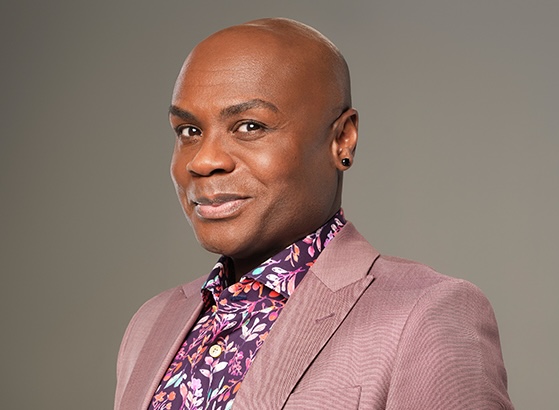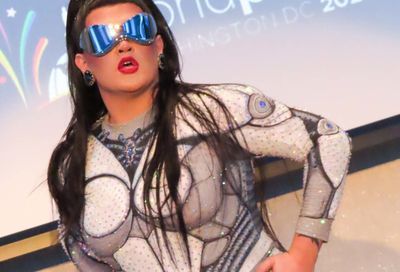Film Review: Downton Abbey
"Downton Abbey" is a comforting, if rushed, return to the beloved upstairs-downstairs drama

It’s been four years since we last stepped inside Downton Abbey. Home of the fictional upper-class Crawleys, the machinations of these privileged few and the people who served their every need played out over six seasons and through more than ten years of their lives, from the sinking of the Titanic to the middle of the Roaring Twenties.
Has much changed in the grand rooms and cramped servants corridors of Downton in that time? In short, no. Set in 1927, two years after the series wrapped, Downton Abbey (★★★☆☆) wastes no time in establishing that nothing outlandish or important has occurred off-screen. Indeed, beyond a beautifully executed opening scene — which follows an important piece of mail from the Royal household through the fields and hills of rural England, until the camera sweeps up and over the mailman to reveal the country house in all its glory — this is business as usual.
Which is to say, if you have never watched Downton Abbey, this is not the film for you. Writer and creator Julian Fellowes has crafted a two-hour reunion special, one with no time to hold the hands of series’ virgins. Wander into a theater expecting to be able to jump right in like Fellowes’ 2001 film Gosford Park and you’ll emerge confused about why all those posh people were so worried about throwing a banquet and a parade.
That is, in essence, the plot of Downton Abbey. The important letter at the film’s opening informs Lord Grantham and company that the king and queen will be popping by for a visit, as part of a wider tour of the region. The Crawleys must entertain the royals for an overnight stay and organize a military parade for the king, with all of the expected pomp and circumstance that entails. Cue restrained worry upstairs, frantic and frenzied preparations among the staff downstairs.
The story is wafer-thin, here to provide a self-contained reason to return to the Crawleys’ lives. Once the royal visit is over, the film wraps. No grand revelations — other than a final moment that will have longtime fans dabbing their eyes — and no cliffhangers. It makes for low-impact viewing, but that lack of suspense also aids the feeling Downton Abbey has of slipping on a favorite pair of warm slippers, or relaxing into a well-worn chair. This is entertainment that envelops you, pulls you into its world, and holds you gently as you enjoy its various dramas and humors.
Keeping things moving are a number of interwoven subplots. These vary greatly in their effectiveness, with some bordering on ludicrous, such as Tom (Allen Leech) dealing with a mysterious stranger who might be a royal agent sent to suss out his republican ideals, or perhaps someone much more sinister, all while Lady Mary (Michelle Dockery) shadows his movements. This narrative strand finishes before the halfway mark, and Tom and Mary swiftly move on to other matters.

Another absurd storyline sees the Downton workers revolting against the royal staff who commandeer the house with an air of superiority that, understandably, rubs the wrong way. However, that Downton’s staff would willingly risk embarrassing the Crawleys just to restore their control and serve the royal family is head-shakingly stupid — as is a dinner scene where footman Mr. Molesley (Kevin Doyle) forgets his place and talks directly to the king.
But none of the plotlines — from Lady Mary worrying about Downton’s future, to kitchen-maid Daisy (Sophie McShera) and footman Andy (Michael C. Fox) having a lover’s tiff over a handsome new plumber, to items mysteriously vanishing from Downton’s many rooms, to Edith (Laura Carmichael) lamenting her boring new social requirements — matter in the grand scheme of things. The film breezes from scene to scene with a flourish of John Lunn’s wonderful score, as Fellowes’ condenses a mini-series’ worth of ideas into the constraint of a three-day visit. Nothing gets room to breathe or register an impact before we’re whisked to another room, another corridor, another beautiful shot of Downton’s landscaped grounds.
One notable exception is Thomas Barrow (Robert James-Collier), the closeted butler, who is sidelined in preparation efforts in favor of bringing back retired Carson (Jim Carter). With nothing to do, he ventures into York and stumbles into a secret hideout for gay men. Tackling 1920s’ attitudes and the ways gay men tried to explore their sexuality, it’s a touching subplot — at one point, a rather incredulous Barrow notes that he’s never had a conversation with another gay person and had it feel “normal.” Played with deft nuance by James-Collier, Barrow’s story also offers a hopeful conclusion often missing from such period explorations of sexuality.

Also helping matters considerably is Violet, the Dowager Countess, played with withering brilliance by Maggie Smith, who is on her usual biting form in a story that engages her in various tense exchanges with her cousin, Lady Maud (Imelda Staunton), over what the latter plans to do with her estate. Though Violet’s screen time is short, there are barbs aplenty, as well as the wonderful clashing of wits with Isobel, Lady Merton (Penelope Wilton).
Even less present here are Lord Grantham (Hugh Bonneville) and Lady Grantham (Elizabeth McGovern), who lack any real narrative except to act bemused at all the cleaning and to bow/curtsy and aid the others in their efforts. And if you wonder why Mary spends most of the film alone, it’s because Matthew Goode, who portrays her husband Henry, had other filming commitments. These factors — combined with the breakneck pace of the story — give Downton Abbey the feel of a rather rushed reunion.
While it’s inarguably wonderful to revisit these characters and remember why we fell in love with them in the first place, Downton Abbey smacks of an easy cash grab on a bankable brand. To the Crawleys, at least, that would seem terribly vulgar.
Downton Abbey opens nationwide on Friday, Sept. 20.
Support Metro Weekly’s Journalism
These are challenging times for news organizations. And yet it’s crucial we stay active and provide vital resources and information to both our local readers and the world. So won’t you please take a moment and consider supporting Metro Weekly with a membership? For as little as $5 a month, you can help ensure Metro Weekly magazine and MetroWeekly.com remain free, viable resources as we provide the best, most diverse, culturally-resonant LGBTQ coverage in both the D.C. region and around the world. Memberships come with exclusive perks and discounts, your own personal digital delivery of each week’s magazine (and an archive), access to our Member's Lounge when it launches this fall, and exclusive members-only items like Metro Weekly Membership Mugs and Tote Bags! Check out all our membership levels here and please join us today!























You must be logged in to post a comment.